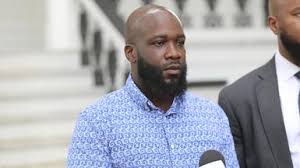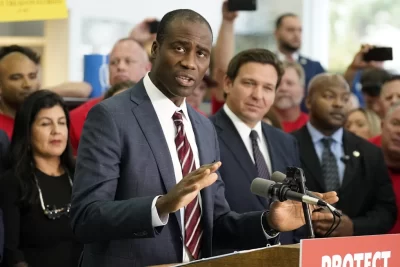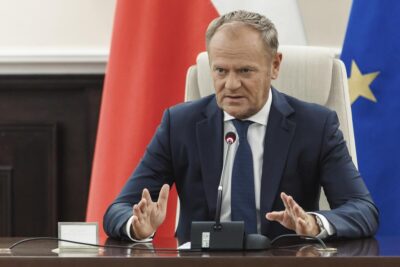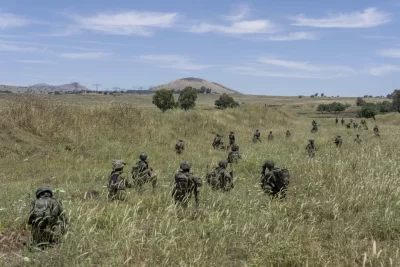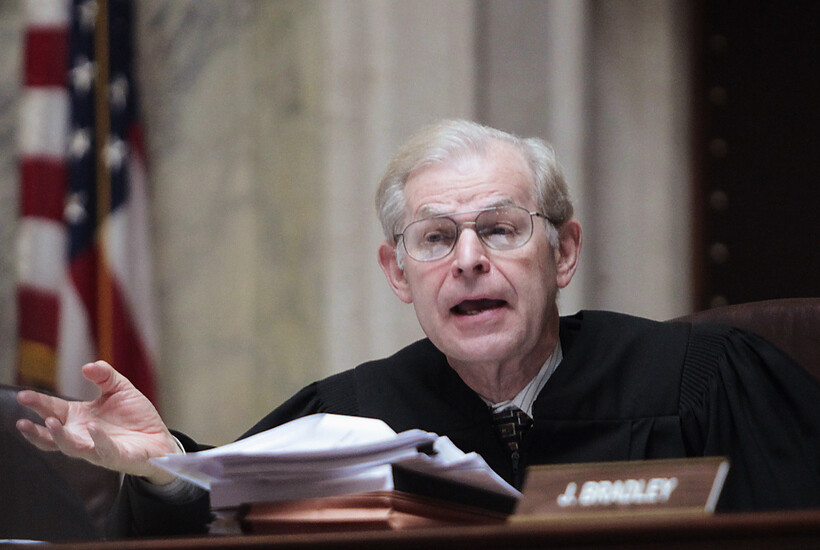
FILE - Wisconsin Supreme Court Justice David Prosser posing a question during a hearing at the state Capitol in Madison, Wis., June 6, 2011. Former Justice Prosser, tapped to investigate impeaching newly elected Justice Janet Protasiewicz for taking Democratic Party money, accepted donations from the state Republican Party when he was on the court. (John Hart/Wisconsin State Journal via AP, Pool, File)
There should be no effort to impeach a liberal Wisconsin Supreme Court justice based on what is known now, a former justice advised the Republican legislative leader who asked him to review the issue.
Some Republicans had raised the prospect of impeaching newly elected Justice Janet Protasiewicz if she did not recuse from a redistricting lawsuit seeking to toss GOP-drawn legislative district boundary maps. On Friday, she declined to recuse herself, and the court voted 4-3 along partisan lines to hear the redistricting challenge.
Assembly Speaker Robin Vos had asked three former justices to review the possibility of impeachment. One of those three, David Prosser, sent Vos an email on Friday, seemingly just before Protasiewicz declined to recuse, advising against moving forward with impeachment. That was after a state judiciary disciplinary panel rejected several complaints lodged against Protasiewicz that alleged she violated the judicial code of ethics with comments she made during the campaign.
Prosser turned the email over to the liberal watchdog group American Oversight as part of an open records request.
“To sum up my views, there should be no effort to impeach Justice Protasiewicz on anything we know now,” Prosser wrote to Vos. “Impeachment is so serious, severe, and rare that it should not be considered unless the subject has committed a crime, or the subject has committed indisputable ‘corrupt conduct’ while ‘in office.’”
Vos raised the threat of impeachment because he argued that Protasiewicz had prejudged the redistricting case when during her campaign she called the current maps “rigged” and “unfair.” Vos also said that her acceptance of nearly $10 million from the Wisconsin Democratic Party would unduly influence her ruling.
Protasiewicz on Friday rejected those arguments, noting that other justices have accepted campaign cash and not recused from cases. She also noted that she never promised or pledged to rule on the redistricting lawsuit in any way.
Other justices, both conservative and liberal, have spoken out in the past on issues that could come before the court, although not always during their run for office like Protasiewicz did. Current justices have also accepted campaign cash from political parties and others with an interest in court cases and haven’t recused themselves. But none of them have faced threats of impeachment.
In his email to Vos, Prosser said he did not think Protasiewicz had met the standard for impeachment, which is reserved for “corrupt conduct in office, or for crimes and misdemeanors.”
She has not committed a crime or corrupt conduct, Prosser said.
“In my view, ‘corrupt conduct’ is not a term that is open to a mere political grievance,” Prosser wrote. “If that were the case, legislative bodies could be trading questionable impeachments with considerable frequency.”
Prosser cautioned that using impeachment to delay or affect the outcome of any single case “will be viewed as unreasonable partisan politics.”
Prosser, a former Republican Assembly speaker, was the only one of the former justices who came forward to say they were on the panel created by Vos. But the records he turned over to American Oversight show that he was also apparently working with former Chief Justice Patience Roggensack on looking at impeachment.
The group has filed a lawsuit alleging that the panel Vos created is breaking the state open meetings law.
“Justice Prosser’s opinion letter demonstrates why Speaker Vos’ secret panel needs to operate in public,” said Heather Sawyer, American Oversight’s executive director, in a statement. “We still don’t know everyone involved or what other work has been done, and will keep pressing to ensure that the people of Wisconsin have full transparency and accountability regarding the Speaker’s impeachment plans.”
Vos announced the formation of the impeachment review panel on Sept. 13. Vos refused to say who he asked and Prosser also would not tell a judge when asked during a court hearing on the American Oversight lawsuit last month.
Text messages from Roggensack to Prosser on Sept. 14 show her asking if Prosser is free for a meeting. Prosser also released a voicemail from Roggensack left that same day referring to the text and asking to speak with him on “a matter that I thought we were going to look at together.”
Prosser, during that Sept. 29 hearing, denied the claim made by American Oversight that the panel was a governmental body subject to the state’s open meetings law.
In a voicemail he released from Roggensack from Oct. 2, Roggensack says she wants to talk with him about why “we, whatever we are, are not a governmental body.”


